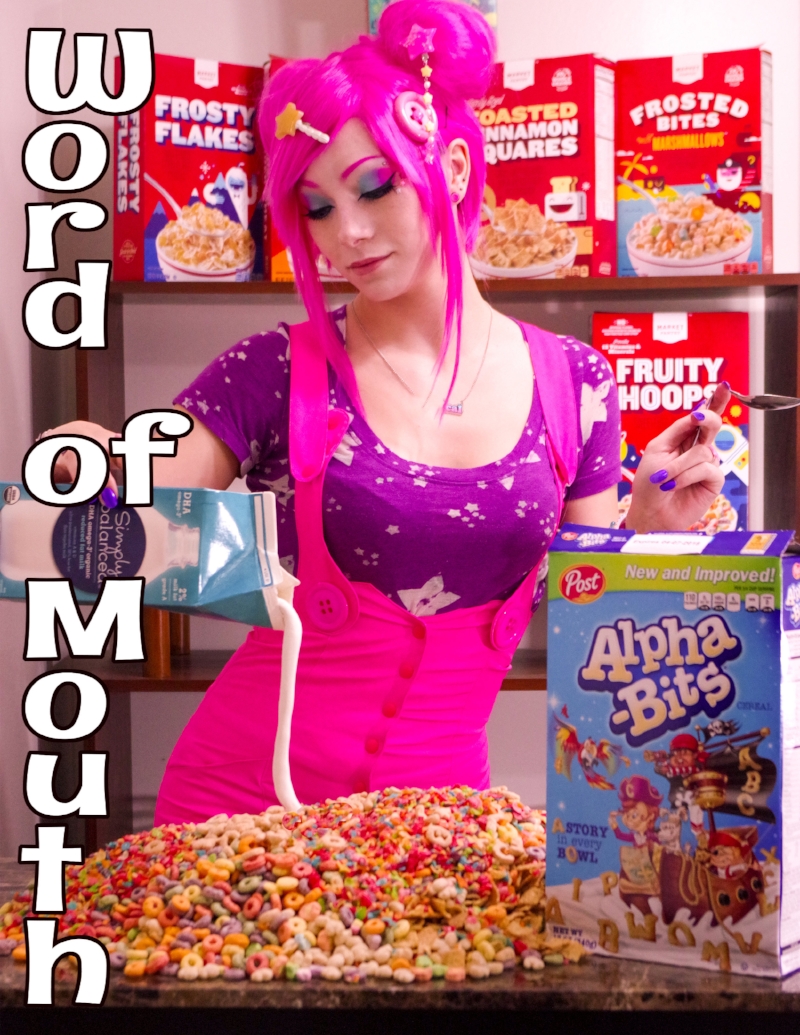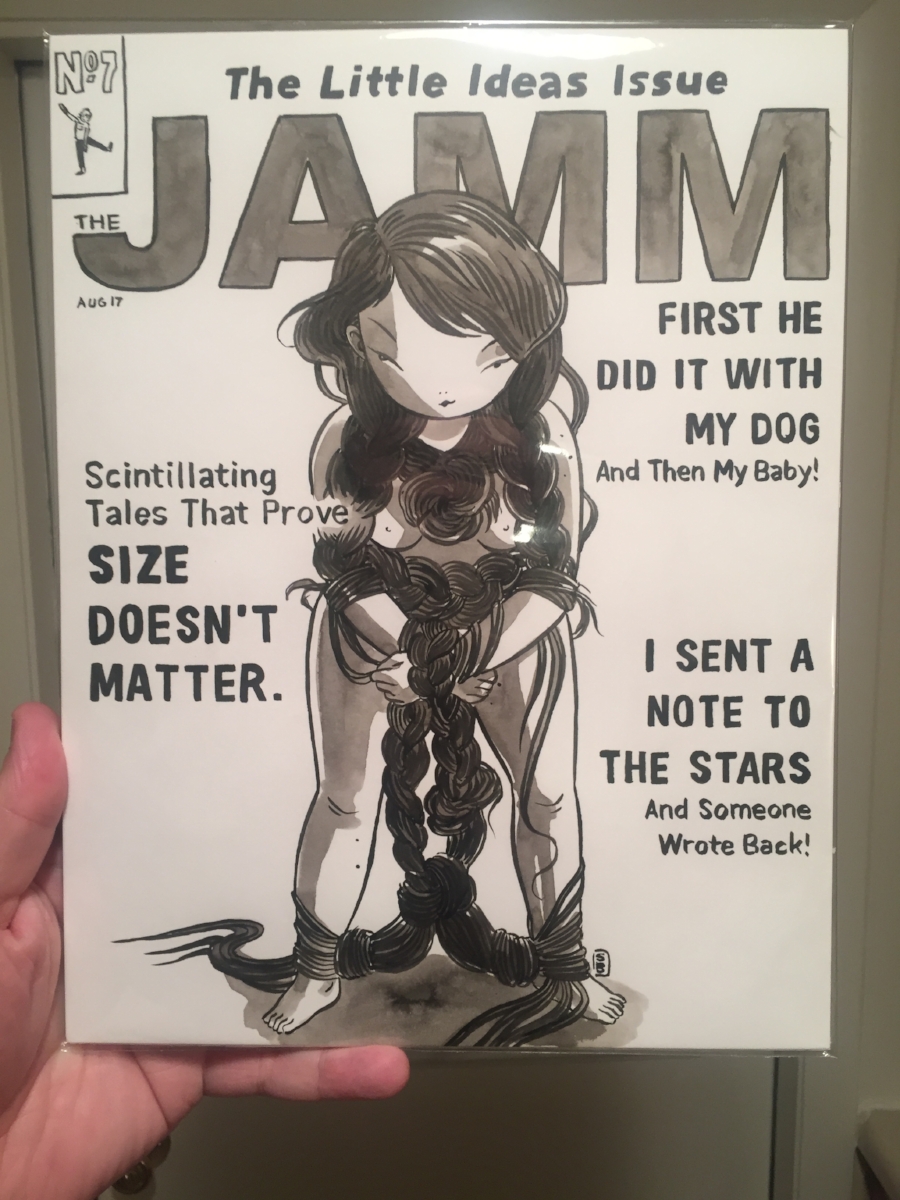This is the second in a series of pompously titled posts where I make pronouncements on the future of magic.
Just about 45 minutes ago I tried out a new Imp that a reader of the site submitted and it went over really well. I'll write it up on Wednesday. It's similar in some ways to the Pulp Fringe-Imp (the post where the Imp terminology was coined). I was particularly delighted to read it because a lot of my thinking recently is about these techniques that push the magic experience beyond the effect itself. But for the most part, if I want to read about that sort of stuff, I have to write it, because it's just not the type of thing that's discussed in magic literature.
In a world where most magic secrets can be so easily discovered, magic needs to be less about the secrets. And what I'm finding more and more as I explore ideas of presenting magic that push beyond the traditional boundaries of the effect, is that the secret doesn't matter that much. In fact, the trick itself doesn't matter that much. I'm not sure if that is reassuring or disheartening. I used to pick up a John Bannon book and think, "A-ha, these 3 effects are bound to get the best reaction so I'll put my effort into learning them." Now I can look at the same book and think, "Yeah, I'd do any of these 40 tricks." I feel like the trick itself matters so little to the audience's experience that I can take any decent trick and then—via the manipulation of presentation style, imps, reps, buy-ins, etc—create something really fascinating for my audience.
With secrets becoming so accessible, I suspect magic will evolve along the lines of endo-trick (within the trick) and exo-trick (outside the trick) thinkers and performers.
Endo-trick thinkers are more fascinated by the elements of the trick itself: the difficulty of the sleights, the obscure mathematical principles, the "beauty" of the method. I think, for the most part, everyone with an interest in magic is an endo-trick thinker on some level. And some of you are only endo-trickers.
Exo-trick thinkers and performers will be more concerned with the elements that come before and after the trick, and the elements that are extraneous to the trick but affect the spectator's experience.
In a way, these are two very different interests. Think of it this way... Imagine Person A: He likes to learn all of the stats for every quarterback in the NFL, he spend hours on his fantasy football line-up, he knows all the betting lines for every game. Now imagine Person B: He loves going to football games, tailgating with friends at his alma mater, and throwing huge Super Bowl parties for everyone in the neighborhood.
You would describe both of these people as "into football," but the way that interest manifests itself is quite different. And it's the same with these branches of magical focus.
Despite having endo-trick interests, I like to talk about the exo-trick aspects of magic here because that's just more appealing to me at this point. And I also think I'm in a unique position to do so. If you want to talk about the different grips for a second deal you can bring that up in any number of message boards or facebook groups. You can get thoughts on how to approach a table from dozens of Penguin Live lectures. But there's only one person who is being given the support to explore amateur performing and some of these exo-trick ideas and he's laying on my couch with his hands on my genitals (I'm talking about me).
So here's what I see happening over time. Secrets will become more and more accessible to the point where they have almost no-value. Endo-trickers will feel free from the sense of obligation that they should be out performing because the one thing they're offering (a fooling trick) can so easily fall apart by having the secret exposed. And so they will go more in the direction of interacting with other endo-trickers.
The exo-trick movement will grow because when secrets have little value, the only way to give someone a valuable magic experience is to make the experience about more than just the secret (which is the same thing as saying that the experience is more than just being fooled).
Magic has traditionally been presented as a demonstration of skill. 100s of years ago it was a demonstration of a fake skill (magic powers). In 1950, a more sophisticated audience would see it as a demonstration of skill that wasn't supernatural, but whose means and methods were not easily known to them. If we assume the path continues and secrets become more widely known and available, then magic as a demonstration of skill will eventually be just a literal demonstration of magic skills, as in, "That's a good second deal." "I almost didn't see that pass." "Your Downs palm is really good." etc.
So I think magic will evolve away from being a demonstration of skill (real or imaginary). Instead, I think the exo-trick movement will push magic into the realm of immersive fiction. I suspect magic will be seen as a form of experiential storytelling. Instead of being a one person exhibition (like being a juggler or ventriloquist) it will be more aligned with things like escape rooms, haunted houses, or parlour games. I think magic won't be seen as something you do, but an experience you create. The best magicians will be those who craft the best immersive stories for people.
And that's going to happen by looking beyond methods and secrets and the tricks themselves.
You might be saying, Oh gee, Andy. So the you think the next evolution of magic is going to be the stuff you write about on this site? Well, yeah, kind of. I mean that's why I'm writing about this stuff. I think this site is on the vanguard of a transition in magic. It's not because I'm creating something new. I just have people supporting this site which gives me the chance to be in the crow's nest and see what's on the horizon. And you're lucky because 95% of the magic community isn't feeling what I'm writing at all. Another 2% likes it but gets upset when I say the F-word or "suckin' on a titty" or something. So if any of these ideas resonate with you, you can be pretty sure you're the only one in your area implementing them. You're getting in on the ground floor, baby!
You might also say that I'm crazy to think magic needs to evolve. "Magic is more popular than ever," you could say. And that's true. But is it more popular than ever as something that generates wonder? Or is it more popular than ever because it's a source of clever puzzles that people can watch and then learn how they're done with an internet search? When it comes to popularity, if you want people to watch your youtube videos, you're better off exposing tricks than just performing them.
So we can't just look at "popularity." A lot of magic's popularity in the modern age isn't reflective of its ability to amaze or enthrall people, which is what a lot of us are going for.
25 years ago, if I wanted to learn how get a coin in a bottle, I'd have to drive, potentially hours, to a nearby magic store and pay real money to get the secret (perhaps after waiting a few weeks for them to come in from the distributor).
Now you can do this and get an answer in literally less than a second.












